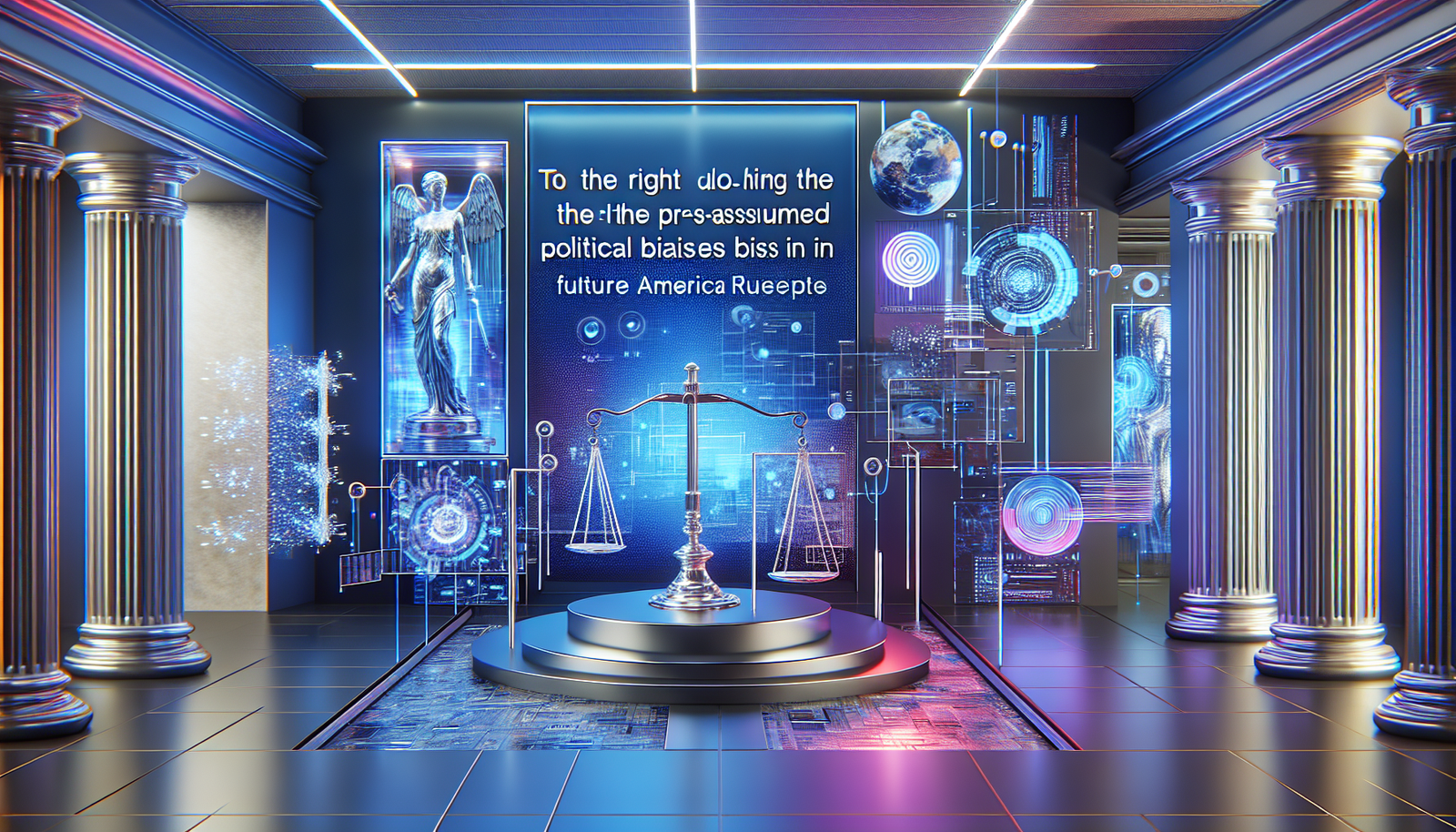The American right is confronted with an unavoidable issue: the political biases of artificial intelligences (AI). This topic sparks intense debate, revealing ideological fractures and major ethical implications. Institutions must examine the impact of algorithms on their decisions and public policies.
AI technologies, now ubiquitous, are transforming the way we interact and access information. A question arises: are AI systems truly impartial? Studies highlight biases that could reinforce inequalities, thereby fueling a growing distrust toward these tools.
In the face of these rising concerns, a call for algorithmic pluralism is being heard, underscoring the urgency of appropriate regulation. The challenges of fair AI touch on both ethics and governance, capturing the attention of many political actors.
Growing concerns regarding AI biases
The issue of political biases in artificial intelligence (AI) systems is becoming a major current topic. Concerns are emerging within the American right, which fears that algorithms may favor certain ideologies to the detriment of others. The perception of algorithmic partisanship could threaten integrity through biased decisions.
Institutional inquiries
American authorities are launching investigations into the use of AI in political decisions. The inquiry specifically targets the use of sophisticated technologies by political figures like Donald Trump and Elon Musk, following massive layoffs within the federal administration. These cases highlight the importance of a transparent regulatory framework concerning the use of AI in the public sector.
The impact on society
The social implications of AI influence are concerning. Many observers point to a risk of systemic discrimination and the reinforcement of inequalities. Indeed, existing biases in training data could generate AI models that exacerbate such issues.
Bias detection tools
In response to these challenges, bias detection tools for AI are emerging, such as those designed to evaluate the adherence of deputies to the policies proposed by ministers. These innovations aim to counter discrimination and promote greater equity through technology. Their development is part of a growing need for transparency and ethics in the tech sector.
Political and media reactions
The right, cautious regarding new AI tools, expresses reservations about their use by influencers. On TikTok, for example, fake influencers have been noted for their role in spreading certain political propaganda, which reinforces distrust toward AI manipulated for ideological purposes. This dynamic raises fundamental questions about freedom of expression in the digital age.
Calls for regulation
A voice is rising in favor of increased regulation of artificial intelligence. Ethics experts argue that the lack of regulations exposes society to potentially dangerous deviations. Proposals include developing a legal framework ensuring algorithmic pluralism to ensure that algorithms do not favor any particular group or ideology.
The future landscape of AI
Debates on political biases in AI show no signs of waning. The right continues to question how the use of AI could reshape the political landscape. On the horizon, technology summits, such as the Paris NFT Show, anticipate increased attention on the rise of AI and its impacts. The time has come to establish safeguards to preserve equity and social justice in this technological era.
Frequently asked questions about the political biases of artificial intelligences
What are the main political biases that the American right identifies in artificial intelligences?
The American right often highlights biases such as the tendency of artificial intelligences to favor liberal or progressive ideologies in their treatment of information and representation of social events.
How do these biases in AI affect public opinion?
Algorithmic biases can influence public opinion by presenting distorted or one-sided information, which can shape perceptions in a biased manner, particularly on sensitive political issues.
What is the reaction of right-wing politicians to these biases in AI tools?
Right-wing politicians often call for stricter regulations on the development and use of artificial intelligences, advocating for greater transparency and accountability from technology companies.
Can AI biases impact elections?
Yes, biases present in algorithms can affect how voters are targeted and informed, potentially influencing election outcomes by spreading biased information.
What concrete examples of political biases in AI can be cited?
Studies have shown that certain natural language processing models can distort political representations, favoring certain perspectives while devaluing others, as observed in instances of content moderation on social platforms.
How can AI companies remedy these biases according to the American right?
The right asks AI companies to conduct regular audits of their algorithms, include diverse voices and perspectives in the development of AI systems, and ensure that control mechanisms are in place to mitigate these biases.
What is the position of the scientific community on biases in artificial intelligences?
The scientific community agrees that biases in AIs are a major issue that requires immediate attention, calling for the development of more diverse and ethical models.
Are there recent political calls for stricter regulation of AI in the United States?
Yes, some representatives of the American right have recently proposed laws and regulations aimed at framing the use of AI to avoid any negative impact on public discourse and to protect citizens’ rights.
How could AI transform the American political arena according to analysts?
AI has the potential to revolutionize political communication, allowing for micro-targeting of voters, but this use raises ethical concerns about the integrity of democratic debate and respect for privacy.






